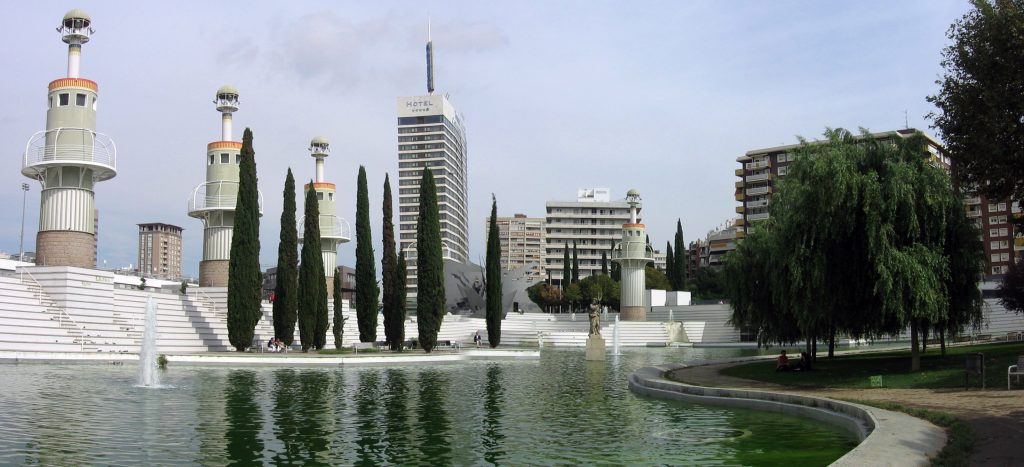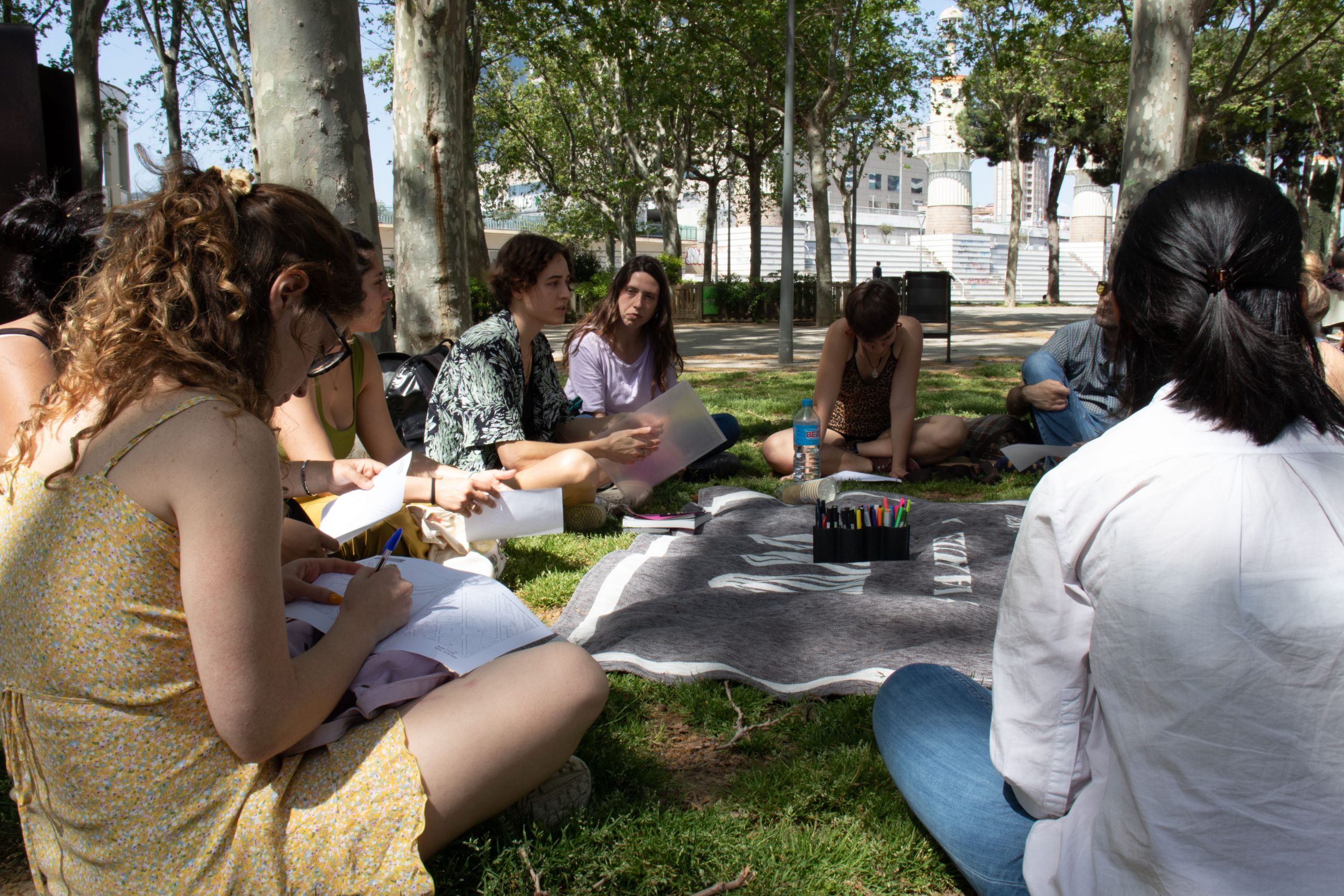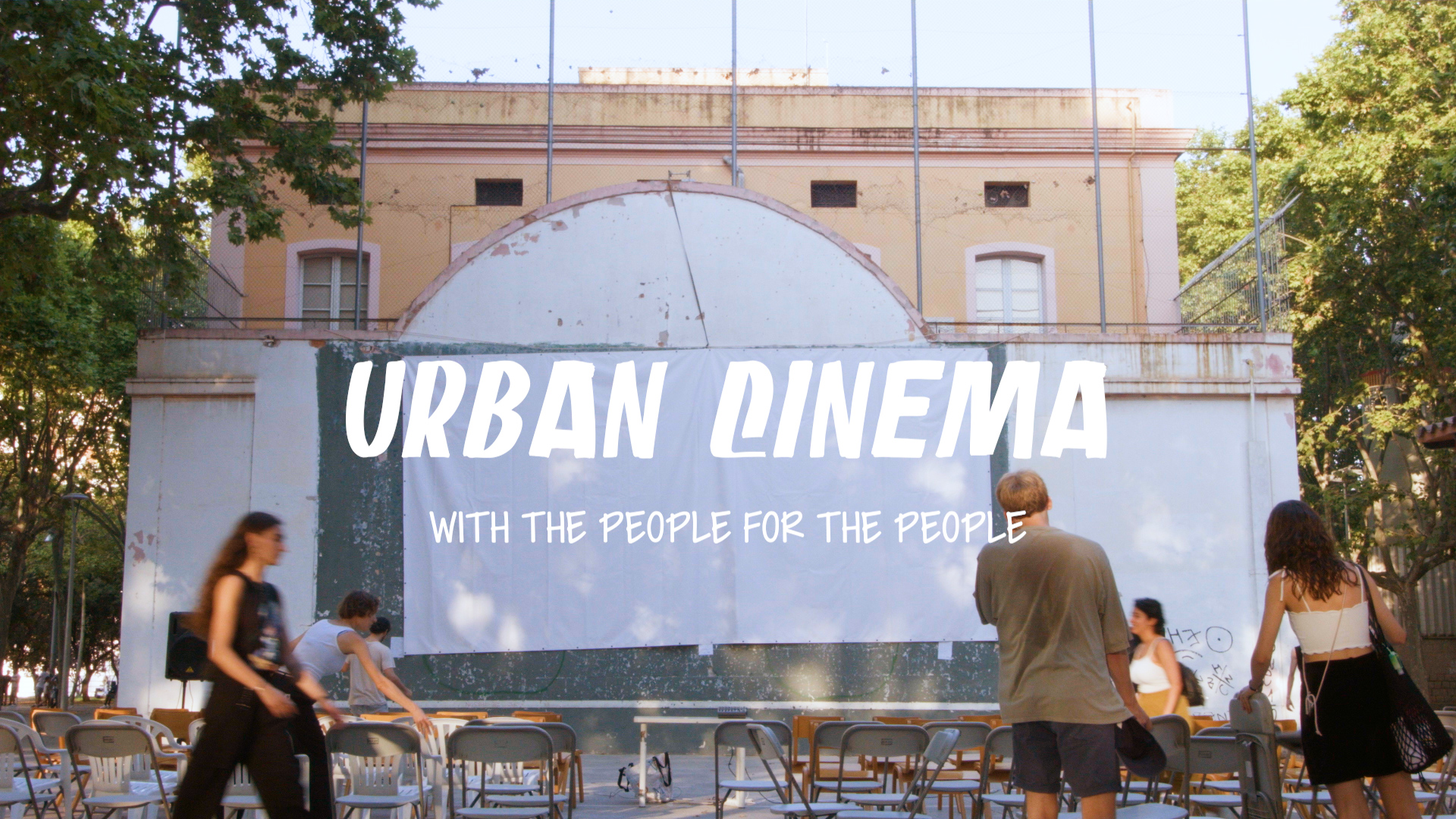Parc de l’Espanya Industrial: aquí (Spain)
aquí is a social innovation collective based in Barcelona. The organisation collaborates with citizens and local organizations to create a more equitable, sustainable and healthy city. aquí facilitates participatory processes and contributes to weaving networks of solidarity.
This pilot project aimed to transform a green space into an “ecosystem of care”, through cultural programming and creating a sense of belonging.
Identified green space
This project focused on the Parc de l’Espanya Industrial, a very popular green space in Barcelona – located in the neighborhood of Sants.

Photography: Canaan via Wikimedia Commons
The project aimed to transform Parc de l’Espanya Industrial into an ecosystem of care by engaging with users and (former) non-users of the park in various ways, as well as with local associations and the district authorities of Sants, thereby building connections and collaborations between the different actors in the park.
Activities
The project combined action research with community engagement, and proposed to design and implement a program of activities articulated around four tracks:

Cultural & artistic activities

Sports & recreational activities

Urban ecology & environmental education

Cooperation, solidarity & social cohesion
In a first step, aquí mapped and initiated contact with various actors in and around the park, including the fab lab located in the park, a nearby municipal centre for young people, and street educators who have strong relationships with vulnerable groups in the area (i.e., women, young people, unaccompanied young migrants, etc.). They subsequently identified with these actors the current networks in the park as well as any existing conflicts between groups of (non-)users. They went on to establish alliances of care with the fab lab, the district-level authorities of Sants, the Network for the Right to Care (a local self-organised citizen network), and various champions of the community.
As part of their action research, aquí conducted informal interviews with people from the various user groups of the park to gather information about why they come to the park and about their interactions with other (non-)user groups. These included, among others, parents from the pre-school inside the park, dog owners, freestyle rappers, petanca players, Bolivian folkloric dancers, and (most prominently) the local grassroots basketball association and the community of skateboarders. They also reached out to non-user groups – particularly young women and the queer community – and built durable relationships with them. In order to find ways to transform the park to be more inclusive of these groups, aquí organised co-creation workshops with them in the park that were focused on themes of care, respect and empathy. These workshops resulted in various ideas for inclusive activities to implement in the park.
Acting on these ideas, three Cineforum sessions were organised in the park with the help of the fab lab. These were prepared by different user and non-user groups with the shared objective of curating free cinema sessions (introduced by a debate) in the park. The sessions were structured around themes such as care, diversity and community and brought together care workers, people from the queer community, the basketball association and the group of skateboarders. Apart from the Cineforum, aquí also facilitated the organisation of a sports activity (free weekly capoeira classes) with a strong gender inclusion component in the park, as well as the creation of a print newspaper that highlighted the better stories of diverse people/collectives with regard to their relationships to the park.


Impact
Ultimately, the project led to increased connections and collaborations between different actors in and around the park, who share a commitment to social inclusion and to collectively taking care of the space they all use. A social network of care has begun to form in the park as well, creating safe spaces for sharing and organising meaningful activities. The initial catalysts for this network proved to be the co-creation workshops and the Cineforum sessions. In this sense, aquí managed to develop the ‘software’ of the park, strengthening the social fabric and relationships of care essential for a resilient community and integrating diverse groups of users in common actions that take care of the park and each other. Soon after the conclusion of the pilot project, the Parc de l’Espanya Industrial started undergoing renovations which focused on the ‘hardware’ side of the park and which will introduce structural changes.
